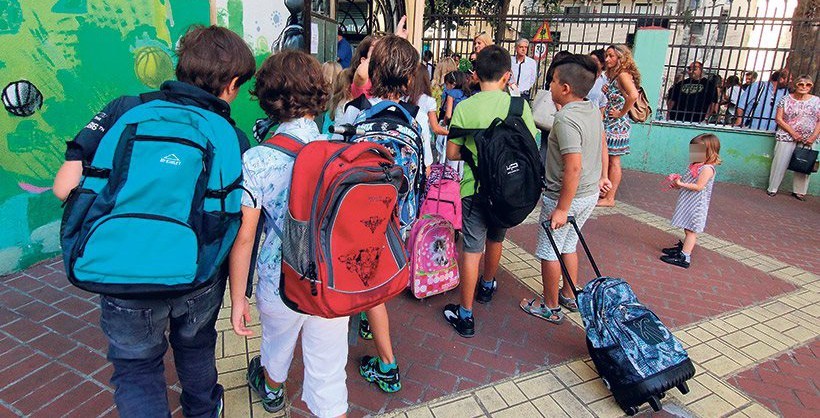In an effort to avoid the 23% VAT hike for private schools, a new innovative idea being explored by the government is the creation of ‘independent schools’ that would be governed by an elected board of governors and be privy to the regulations and conditions that apply to state-funded schools. These schools, known as ‘Public Schools’ would be open to pupils regardless of where they live and would essentially ‘own themselves’.
The new-type school for Greece is being examined by the Ministry of Education and would offer an atlernative to free education with a mixed private-public character, standing as an atlernative to the tax hike. Parents could pay using “school vouchers” among other options.
Sources state that the idea for the creation of ‘independent schools’ was suggested by the Association of the Greek Private Schools Foundation (SIEIE) President Haralambos Kyrailidis. Education Minister Nikos Filis is said to have listened to the idea with great interest though he failed to outrightly discuss the suggestion beyond stating that it would be examined further to see if it is viable and effective.
A study by the Foundation of Economic and Industrial Research states that the funding of a public school could come from alternative sources from those of the state and taxpayers. It is examining the possibility of sponsorship as funding. Noteworthy is the fact that a high school student at a state-funded school in Greece costs the Greek government 5,000 euros per annum whereas the same student at a private school saves the state the money and costs 7,197 euros, wheras in primary education a state school student costs the government 3,763 euros but non-state funding at a private school costs 5,801 euros.
‘Independent Schools’ could be non-profit organizations created by parent associations, universities or municipalities without having fees. They already exist in a number of countries abroad. Also noteworthy is the fact that Greece is the only country that doesn’t fund private schools whereas in 26 of the 29 OECD countries there is state funding available to private institutions e.g. Sweden (99.6%), Finland (97.4%), the Netherlands (96.5%) whereas the OECD average is 57.6%.
Regardless of whether parents will in the future have the option of sending their children to these new types of Public Schools, Kyrailidis has stated that he intends to take legal action for the abolition of the 23% VAT hike. Over summer he has already appealed to the European Commission against the matter and is waiting for a reasoned opinion.




































